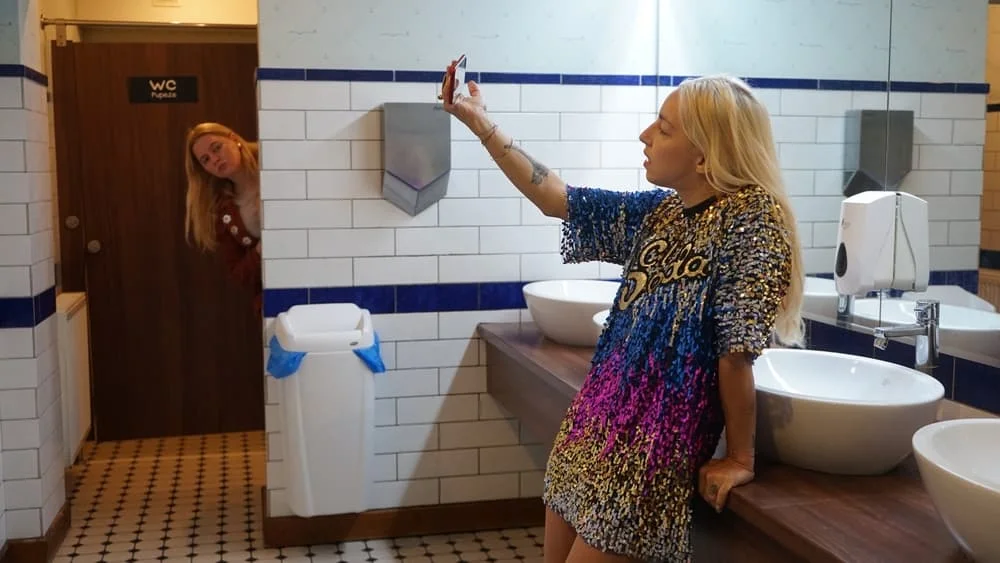Radu Jude’s 2021 Golden Bear winner “Bad Luck Banging or Loony Porn” begins with tape amateurish unsimulated sex tape of its main character. The Romanian filmmaker is letting us know right out of the gate that he’s not fucking around. There’s nothing quite as abrasive in his new film “Do Not Expect Too Much from the End of the World,” but it is nevertheless just as provocative, biting, and uncompromising as his previous masterpiece.
While “Bad Luck Banging…” took aim at everyone and anything that could be considered a push toward fascism, Jude’s targets are more specific this time around. He’s coming for the media industry and the fascist enablers that run things. Jude believes that art is about freedom, both a means of expressing it and fighting for it, but he knows that not everyone sees it that way, particularly those in power in the business. When an art form is used almost exclusively to sell commodities and regressive ideas, it loses its purpose. It becomes a bunch of narcissists inflating each other's egos over how important they think they are. All while oppressing the working-class people who do the grunt work for them while they sit around and act like they have any real ideas at all.
The film follows Angela, a low-level production assistant who is forced to work unsafe hours and has unrealistic aspirations of making genuinely great art. Throughout the film, we see brief interjections of bad Andrew Tate parody videos that she makes and posts online. If she learns anything from her employers, it’s how to blow smoke up your own ass for making garbage. It sounds like she’s gaining a bit of a following from this dumb bit, but success does not mean quality. And even success is relative. She still has no money and is forced to drive all around Bucharest doing menial tasks for her bosses.
Angela’s story is intercut with clips from a Romanian film from 1981, “Angela Goes On.” I’ve never heard of this film, but from the looks of it, it seems as though it’s about how people can still find meaning and happiness in their lives from unrewarding, menial labor and the human connections they make from it. I’m not sure if Jude is arguing about the general ridiculousness of this statement, or just how poorly it has aged at a time when we seem to be more isolated than ever, but in either case the contrast between the color of the earlier work and the black and white cinematography of Jude’s film makes clear that the “socialist realism” of “Angela Goes On” is not realism, but fantasy. That’s why Jude shoots his Angela’s dumb videos in color as well. It is her escape from her shitty normal life.
Jude brings full color to his magnificent coda, and extended sequence depicting the shooting of a work safety video for a nameless, faceless corporation with a worker who had recently been disabled on the job. Though there are a couple of cuts, Jude forces us to stare at a single composition for the last 45 minutes. The family of the disabled worker stands in front of dilapidated Soviet industrial infrastructure as the director of the video coaches the man through the information he needs to get across. As the sequence continues, we realize the director is forcing the man into basically shifting blame for his injury from the corporation onto himself in the same way old Soviet propaganda videos would. All while the representative from the corporation isn’t even there. This is a conscious decision on the part of the artists, enablers of oppression for personal betterment. In the film’s final moments, the director asks the man not to tell his story but to hold up green screen cards, on which he assures the concerned family he will add the man’s full story in post-production rather than whatever the company wants the video to say. Are we meant to take this man at his word? Of course not. We know how this works by now.

